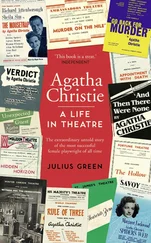Alice Green - Town Life in the Fifteenth Century, Volume 2
Здесь есть возможность читать онлайн «Alice Green - Town Life in the Fifteenth Century, Volume 2» — ознакомительный отрывок электронной книги совершенно бесплатно, а после прочтения отрывка купить полную версию. В некоторых случаях можно слушать аудио, скачать через торрент в формате fb2 и присутствует краткое содержание. Жанр: literature_19, foreign_antique, foreign_prose, Историческая проза, на английском языке. Описание произведения, (предисловие) а так же отзывы посетителей доступны на портале библиотеки ЛибКат.
- Название:Town Life in the Fifteenth Century, Volume 2
- Автор:
- Жанр:
- Год:неизвестен
- ISBN:нет данных
- Рейтинг книги:5 / 5. Голосов: 1
-
Избранное:Добавить в избранное
- Отзывы:
-
Ваша оценка:
- 100
- 1
- 2
- 3
- 4
- 5
Town Life in the Fifteenth Century, Volume 2: краткое содержание, описание и аннотация
Предлагаем к чтению аннотацию, описание, краткое содержание или предисловие (зависит от того, что написал сам автор книги «Town Life in the Fifteenth Century, Volume 2»). Если вы не нашли необходимую информацию о книге — напишите в комментариях, мы постараемся отыскать её.
Town Life in the Fifteenth Century, Volume 2 — читать онлайн ознакомительный отрывок
Ниже представлен текст книги, разбитый по страницам. Система сохранения места последней прочитанной страницы, позволяет с удобством читать онлайн бесплатно книгу «Town Life in the Fifteenth Century, Volume 2», без необходимости каждый раз заново искать на чём Вы остановились. Поставьте закладку, и сможете в любой момент перейти на страницу, на которой закончили чтение.
Интервал:
Закладка:
In short in every town the bakers, brewers, vintners, cooks, hostellers, and publicans “built their nests high” buying burgages out of the pence of the poor, [132] Piers Ploughman. Pass. iv. 83. A prosperous cook at Oxford in 1400 married his daughter to one Lelham “Dominus de Grove.” By the marriage contract the cook was to give to Lelham twenty marks to be paid at intervals; to the bride and bridegroom he was to give three tenements in Oxford; he was to make provision for them in his own house for eight years, and when after that they were to be set up in a house of their own he was to provide them with a bed, blankets, sheets, and all other furniture needful for the same bed, a vessel for water, a wine vase, two tablecloths, two towels, twelve silver spoons, two cups, two brass pots, one chawfre, four plates, one dozen vessels for garnishing the supper, two salts, two candle-sticks. Hist. MSS. Com. xi. 3, 75-6.
and in spite of law and ordinance walked the streets in the furred mantles of aldermen, entered the council chamber, kept the treasure chest as chamberlains – issuing prudent versions of the town accounts calculated for the public eye, and themselves regulating the assessments for taxes in the interests of their wealthy fellowship – and presided over the courts of justice, where they administered the assizes of bread and beer for the benefit of the fraternity; while for their services they required a part of the common land to be enclosed for their use, or pastured their flocks at the public expense, and in a thousand ways gathered in for generations the harvest that then ripened for men in authority. [133] See Nott. Rec. iii. 74-76, 342, 353, 358-60, 461, 463. The holding offices of all kinds by victuallers and brewers was forbidden (Stat. 12, Ed. II. cap. 6. 6 Ri. II. st. 1, cap. 9, H.M.C. ix. 174, xi. 3, 19), as a protection to the people from fraudulent administration of the laws concerning food; but these statutes were everywhere broken.
No law could shut them out from the mayor’s seat; and carrying away from office the robe of “clean scarlet” which gave them the chief places among the powerful members of “the Clothing,” [134] (See pp. 352-3.)
they still dominated over a helpless people, with scarcely any check save from the jealousy of their fellow traders. Thus all Canterbury was disturbed in 1507 by the brewer Crompe who, having been mayor for a year, returned to his former business on leaving office, and went about busily canvassing the small retailers, promising that if they would sell Crompe’s beer he would be their “very good master whatsoever they had to do in the Court Hall,” and that he would see to it that their pots should not be carried off on charges of short measure to the Hall. In cases of this kind remonstrance from the people seems invariably to have been perfectly useless, and the only complaint recorded in Canterbury was that of the rival brewers, who met Crompe’s competition by an appeal to a custom of the town that the mayor should altogether forsake the victualling trades; in the course of the half century there had been, it was said, at least six mayors who had “lived like gentlemen” for the rest of their lives after leaving office, and though this polite profession allowed them to carry on the business of drapers or cloth manufacturers, it was proved that one ex-mayor who had been a brewer as well as draper left off his brewery and never returned to it; while another who was a baker sold his business, hired his house to another man, and “lived after as a gentleman.” Crompe however remained obstinate, contemptuously protesting that the alleged “custom” was but fifty years old (a bit of special pleading on his part since this was just the age of the mayoralty itself in Canterbury) and, that the mayors had ceased to be victuallers out of self-indulgence, and because they preferred to live at their ease. [135] H.M.C. ix. 173-4.
At the first victuallers and publicans owed their supremacy in the town society to the fact that among a people needy and thrifty the trader’s only way to fortune lay in selling the common necessaries of life. The great bulk of the people lived poorly. In general perhaps the master craftsman scarcely earned a higher wage than his journeymen, [136] According to Thorold Rogers (Agric. and Prices, iv. 502-5) about 20 per cent. in excess. Skilled workmen, such as architects, artists, trained clerks, &c., were paid at very modest rates, though sometimes they were given honour by being boarded as gentlemen.
and may have often eked out his livelihood by ploughing and reaping his lot of the common land at one time, while at another he worked at his occupation with two or three helpers – servants and apprentices “which be of no great having,” and who were by law compelled to cut, gather, and bring in the corn [137] Statutes, 12 Richard II. cap. 3.
if they were employed in a trade “of which craft or mystery a man hath no great need in harvest time.” The first speculators who were tempted by visions of a great public with its exhaustless needs and unfathomable purse pursued their dreams with the guile of petty schemers. If a dealer proposed to make his fortune in malt he opened proceedings with the strictest economies. A penny or a half-penny served as earnest money to the peasants from whom he bought his corn, and who were told to come to the house for payment. “And when they come there and think to have their payment directly, the buyer says that his wife at his house has gone out, and has taken the key of the room, so that he cannot get at his money; but that the other must go away and come again soon and receive his pay. And when he comes back a second time, then the buyer is not to be found; or else, if he is found, he feigns something else, by reason whereof the poor men cannot have their pay. And sometimes while the poor men are waiting for their pay the buyer causes the corn to be wetted,” and then tells the peasant he may take it away with him if he does not like the price offered. [138] Riley’s Liber Albus, 261-2.
In the same way the cloth contractor started with a modest business that needed no outlay of money, taking the raw material which his customers brought to him and handing it over to weavers, who on their side provided their own tools and did the work in their own homes. As he prospered in the world he may have become the owner of a few looms which he let out to the weavers he employed; or he perhaps added to his trade the keeping of a little shop or some small pedlar’s business for the sake of such petty gains as the law, looking in those days with scant favour on dealers, might allow. Often hard set to carry on his business, he sought to help out his poverty by cunning, and the expedients to which he was driven – the giving out of bad material or short weight to his workmen, the devices to save a few pence here and there by deducting it on one pretext or another from payments due, the giving wages in victuals or needles or mercery or the waste trifles of his little shop – must often indicate the distracting pressure of immediate need under which he anticipated the devices of the small working employer of to-day. [139] For particulars of truck wages see Stat. 4 Edward IV. cap. 1. This payment on the truck system was spoken of as a new thing in the middle of the fifteenth century (Wright’s Political Songs, ii. 285), and is referred to in Libel of English Policy. It was forbidden by town ordinance in Winchester and Worcester. (English Guilds, 352, 383.)
But from the earliest times it is evident that there were many of the more successful traders who rose to a position which, in a humbler degree, closely resembles that of our modern capitalists and employers, and that this class constantly tended to increase in wealth and in numbers. They evidently rivalled in astuteness their brethren of lowlier fortunes.
Читать дальшеИнтервал:
Закладка:
Похожие книги на «Town Life in the Fifteenth Century, Volume 2»
Представляем Вашему вниманию похожие книги на «Town Life in the Fifteenth Century, Volume 2» списком для выбора. Мы отобрали схожую по названию и смыслу литературу в надежде предоставить читателям больше вариантов отыскать новые, интересные, ещё непрочитанные произведения.
Обсуждение, отзывы о книге «Town Life in the Fifteenth Century, Volume 2» и просто собственные мнения читателей. Оставьте ваши комментарии, напишите, что Вы думаете о произведении, его смысле или главных героях. Укажите что конкретно понравилось, а что нет, и почему Вы так считаете.












